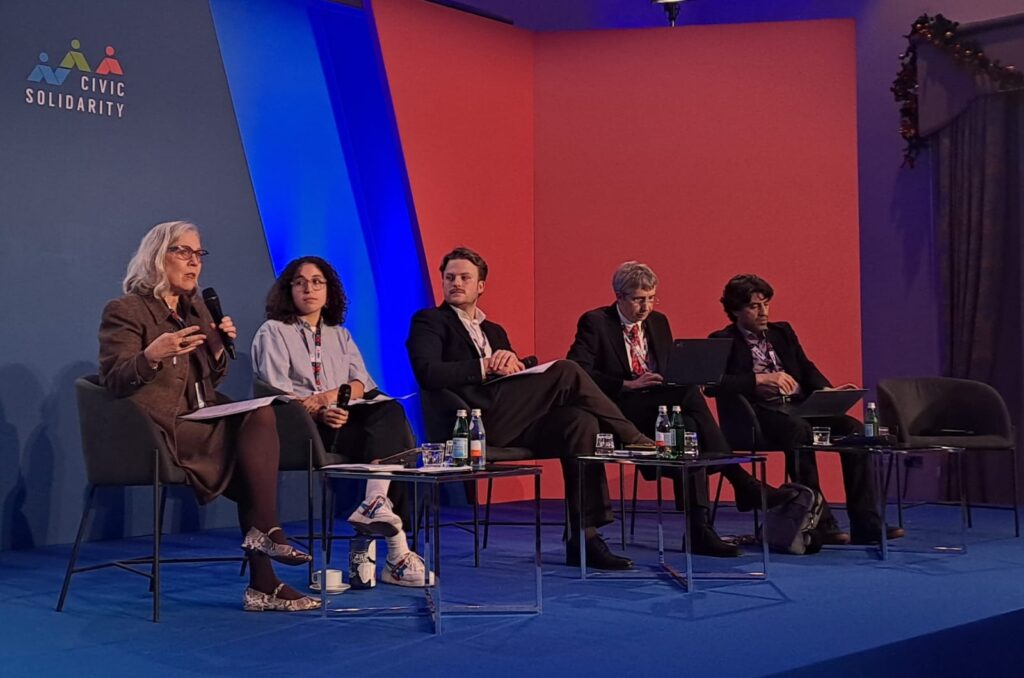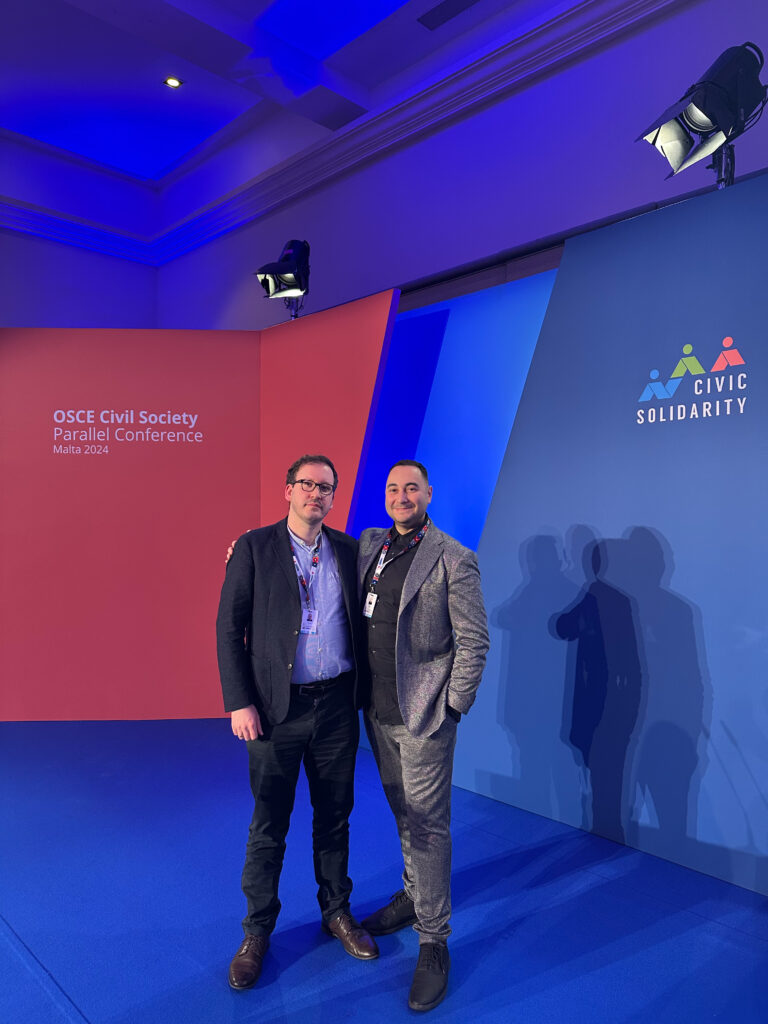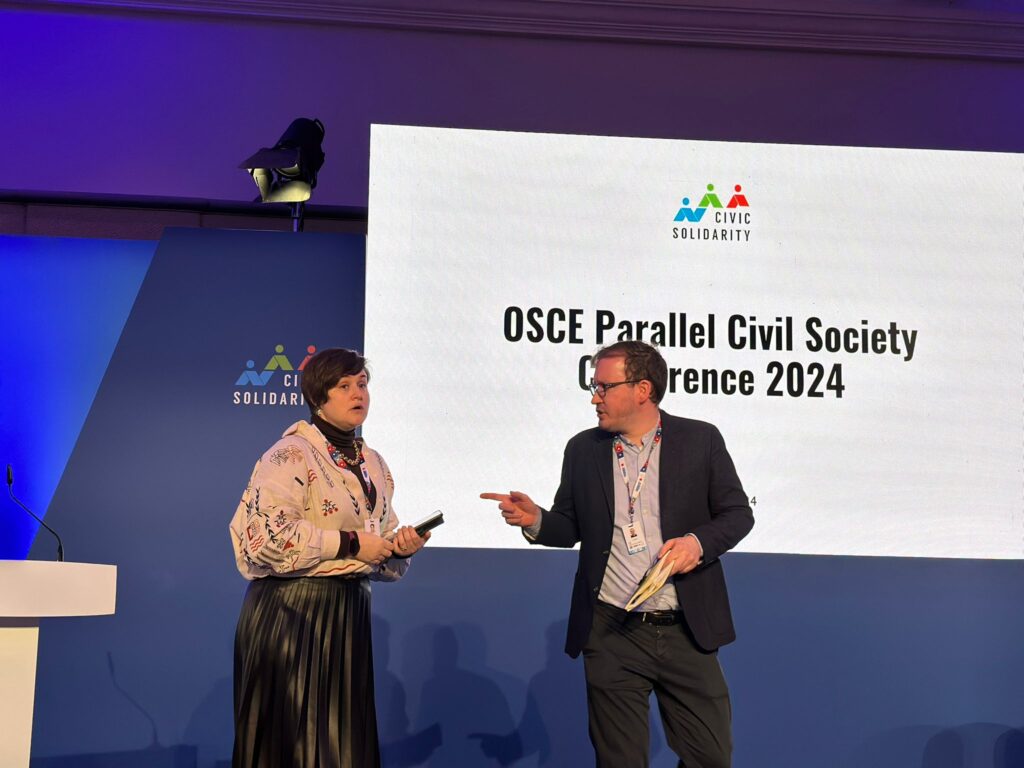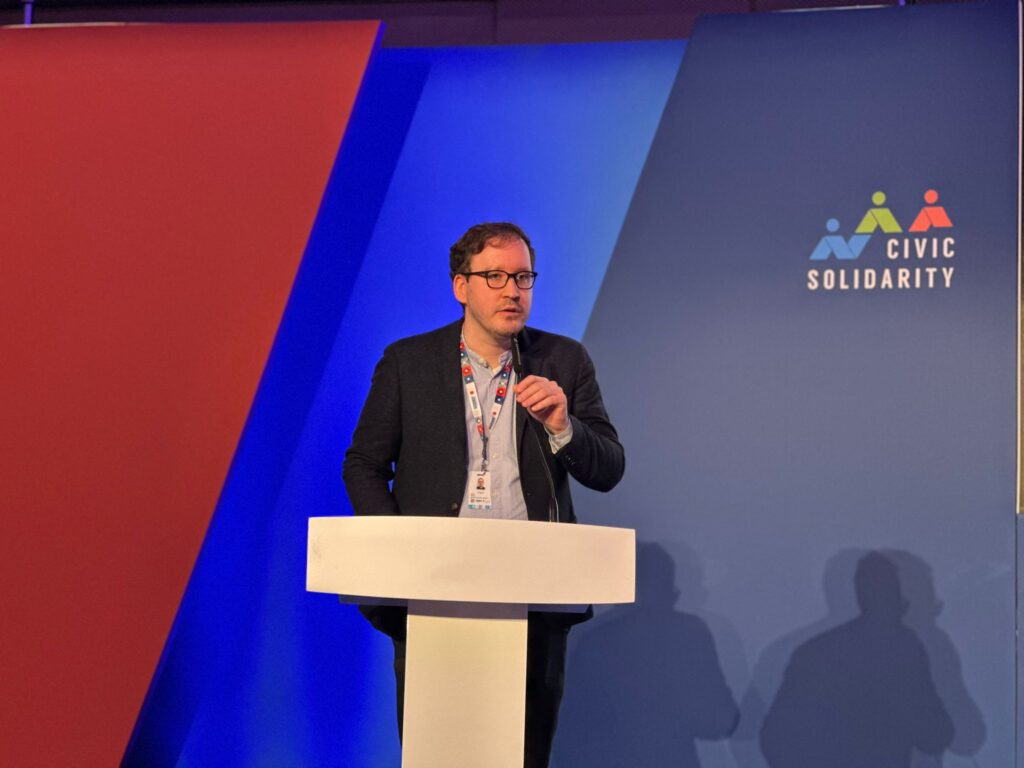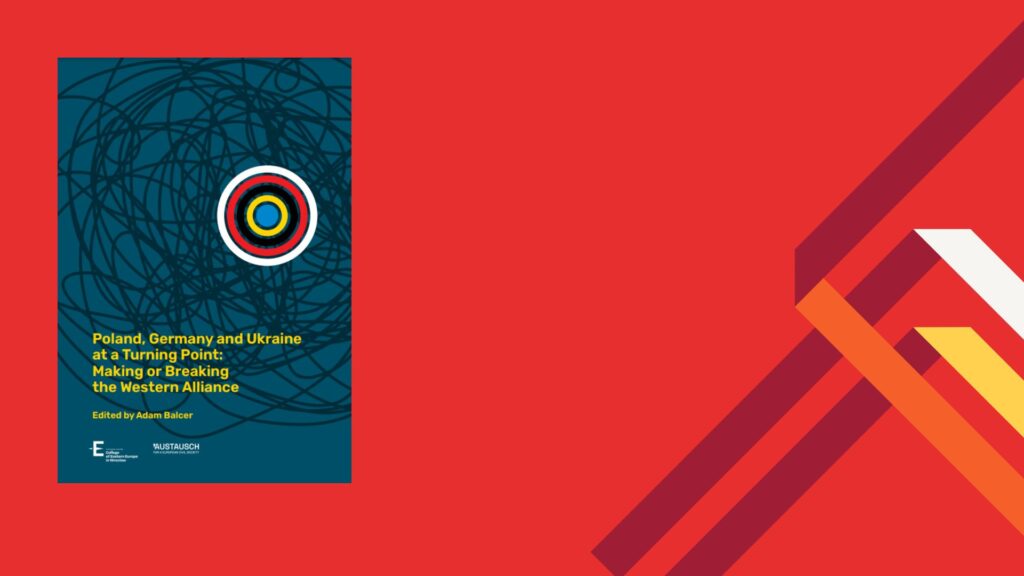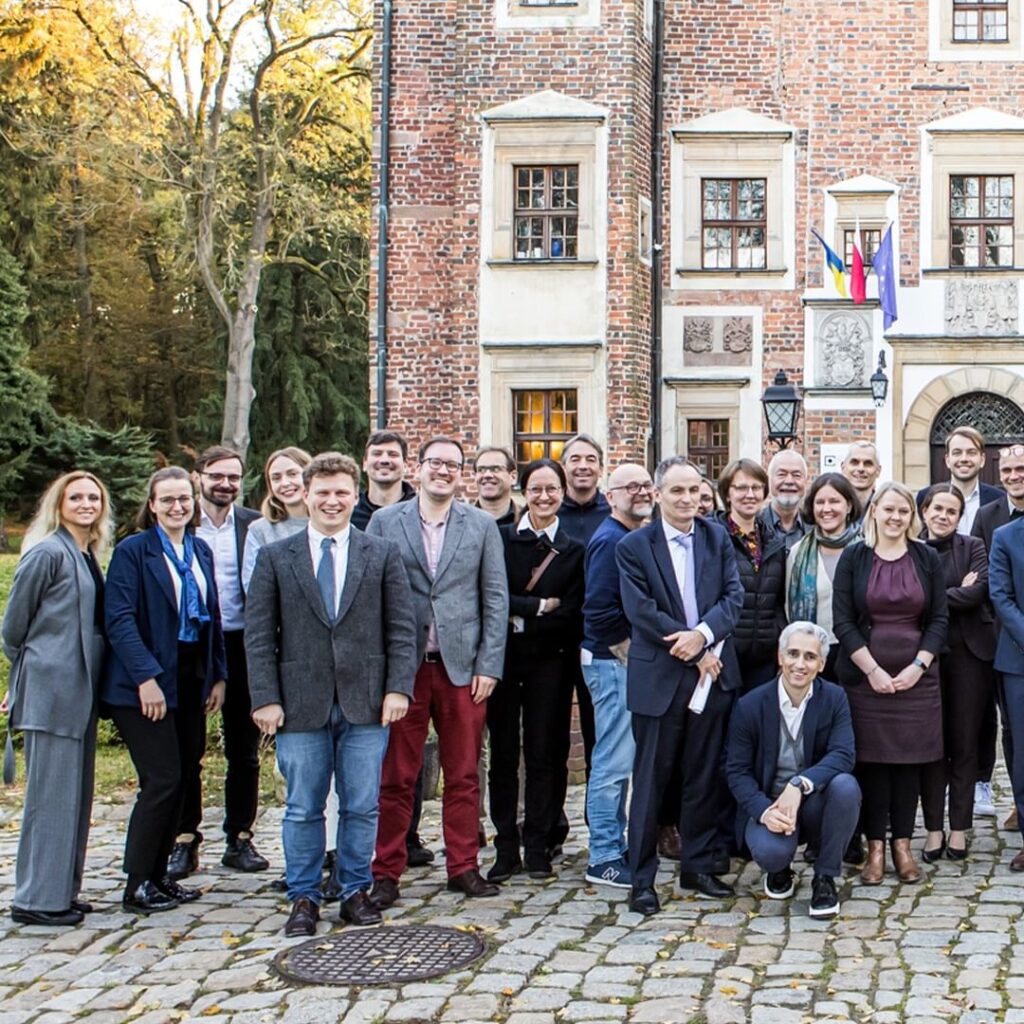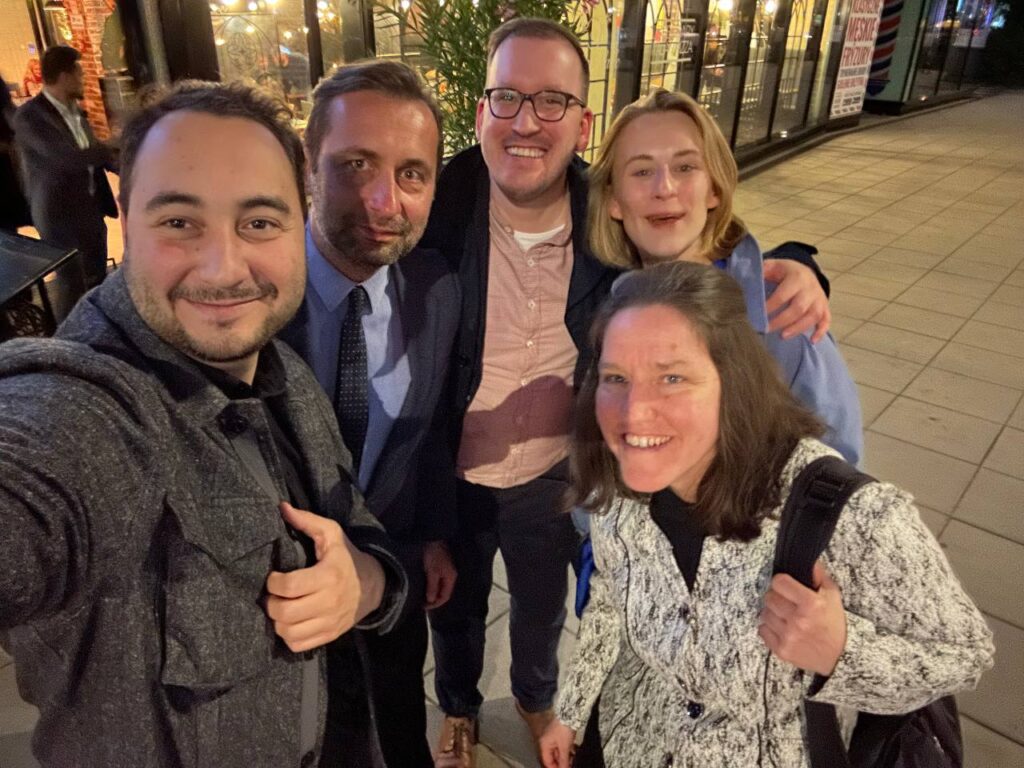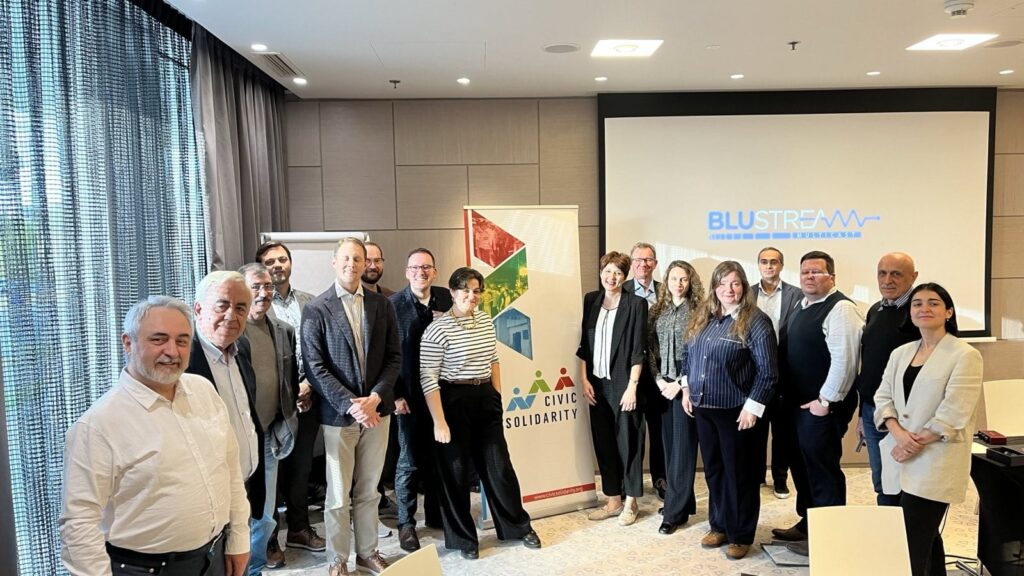Austausch at the 2024 OSCE Parallel Civil Society Conference in Malta
“Our conference is taking place in challenging times,” noted Jacob Riemer, Second Executive Director of Austausch e.V., during his opening remarks at the 2024 OSCE Parallel Civil Society Conference in Malta. “Russia’s war of aggression against Ukraine continues with unrelenting severity. The principles of the OSCE are under pressure like rarely before—not only east of the OSCE headquarters in Vienna but increasingly to the west as well.”
Ukraine remains central to our mission of fostering democratic resilience and security across the OSCE region. Panels throughout the conference emphasized the urgent need to continue supporting Ukraine in its fight against Russian aggression, advocating for increased aid during this turbulent period. The conference’s outcome documents included a strong statement supporting Ukraine and the people of Belarus, who are enduring a repressive regime expected to rig their 2025 elections.
Austausch takes pride in co-organizing this pivotal event with our renowned and longstanding partner NGO, the Center for Civil Liberties (CCL) Ukraine. Civil society representatives from across the OSCE region gathered to discuss cooperative security challenges in Europe and Eurasia, delivering actionable recommendations ahead of the 31st OSCE Ministerial Council in Malta. This event was made possible by the generous financial support of the German Federal Foreign Office and co-funded by the incoming OSCE Chairpersonship of Finland.

As an active member of the Civil Solidarity Platform (CSP) throughout 2024, Austausch played a significant role in shaping discussions on the future of the OSCE, culminating in co-authoring the final document presented at the conference. This document, handed over to the Foreign Ministers of the OSCE Troika—Malta, Finland, and North Macedonia—and OSCE leaders, demonstrates our commitment to ensuring civil society has a voice in shaping security policies.
The Malta Declaration highlighted several critical points, including the urgent need to reinvent and strengthen the OSCE to address current crises and the vital role of civil society in driving reforms. Other chapters addressed pressing issues such as the shrinking space for civil society across the OSCE region, the fight against torture, the climate crisis, rising discrimination and xenophobia targeting minorities, migrants, and LGBTIQ+ individuals, and the importance of integrating a gender perspective into OSCE reforms.
Austausch remains committed to continuing this vital civil society work, ensuring a collaborative and secure future across the OSCE region.
